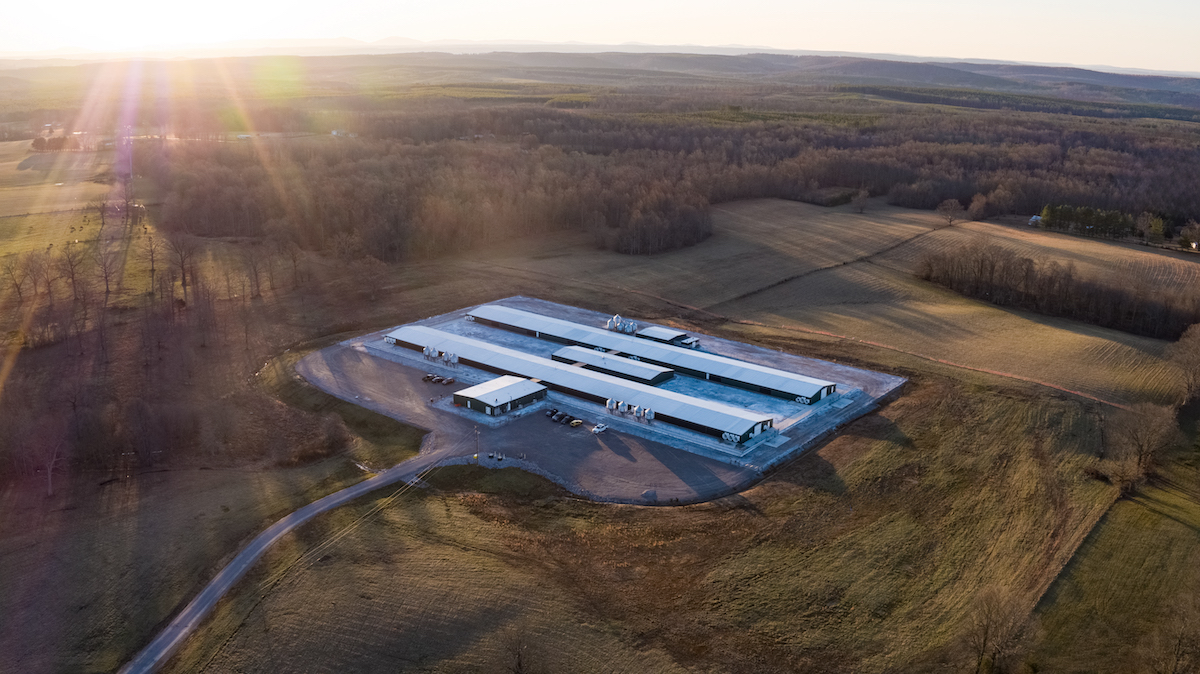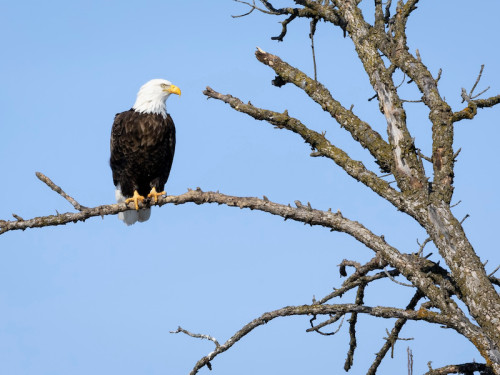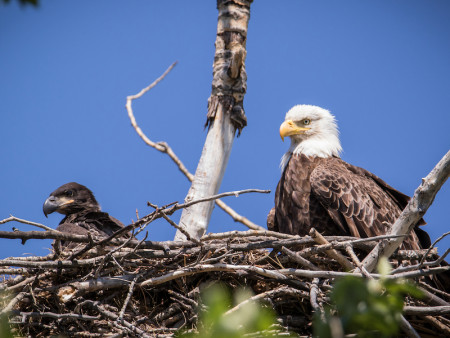Eagles Nest – Where innovation and conservation meet
At Aviagen, sustainability isn’t just a checklist — it’s a mindset that shapes every decision we make.
That mindset was put into practice in a remarkable way at one of our newest farms in North America. In 2020, our team began planning a new state-of-the-art pedigree breeding facility in Tennessee — a 86.9-square-meter (285,000-square-foot) site that would later be named Eagles Nest. The name turned out to be more than symbolic.

 As we surveyed the 35.2-hectare (87-acre) site, something extraordinary came into view: a bald eagle nest perched in a tall pine, just 201 meters (660 feet) from the proposed location. A pair of eagles had been returning to that very tree, season after season, raising eaglets under the shelter of the forest canopy.
As we surveyed the 35.2-hectare (87-acre) site, something extraordinary came into view: a bald eagle nest perched in a tall pine, just 201 meters (660 feet) from the proposed location. A pair of eagles had been returning to that very tree, season after season, raising eaglets under the shelter of the forest canopy.
The bald eagle is a special, protected species in North America, and we knew we had a responsibility – not just to build a world-class farm, but to protect the natural inhabitants of the land we were entering.
Rather than pressing forward with business as usual, we hit pause and rerouted. Working with a local environmental consulting company, we developed a plan that would allow both the farm and the eagles to thrive. We secured a Short-Term Eagle Incidental Permit from the U.S. Fish and Wildlife Service, and took careful measures to minimize any impact:
- A 490-foot buffer zone was set around the nest.
- Noise was kept to a minimum during the sensitive nesting months (November to June).
- Stands of tall native pines and hardwood trees were preserved to offer future roosting spots.
- Regular monitoring was put in place – and continues today.
 Thanks to these efforts, the eagle pair not only remained undisturbed – they successfully raised two fledglings in 2024.
Thanks to these efforts, the eagle pair not only remained undisturbed – they successfully raised two fledglings in 2024.
With several construction projects underway at the time, we were able to adopt a flexible construction schedule that allowed us to avoid the most sensitive nesting window. It wasn’t the easiest route, but it was the right one.
Eagles Nest is more than a name — it’s a story of how sustainability, wildlife protection and innovation can go hand in hand. And for our North America team, it’s a reminder that protecting nature starts right in our own backyard.